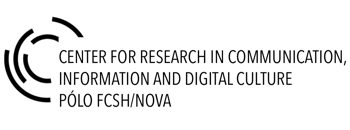This special issue will interest scholars who are concerned to inquire how digitalization has changed journalistic news sourcing techniques. The use of reliable sources is one of the most important aspects of journalistic news production. However, when making news, journalists now increasingly use social media, websites, wikis, and online encyclopedias as sources. In today’s 24/7 news cycles, online sources offer a quick, convenient, cheap, and effective way for journalists to gather information on developing stories, and they increasingly also trigger news stories.
But, what are the consequences of online sourcing for professionalism and journalism practice? Do online sources change the power relationship between elite actors and journalists, and lead to tensions? Can all online sources be reliably verified?
For this special issue, we are interested in showcasing research that focuses or is related to one of four aspects of online sourcing in journalism.
First, we ask which online sources are most prominent within journalistic reporting, and/or whether they have replaced more traditional sourcing techniques?
Second, we want to show research that asks why and how journalists use online sources during their daily work and in the newsroom, and how they verify these sources.
Third, we focus on the consequences of online sourcing for audience perceptions of journalism, for example in terms of the credibility of news and journalism.
Fourth, we aim to investigate potential changes in the relationship between journalists and (elite) actors as sources, who now have multiple options to communicate with audiences directly.
We encourage scholars to engage with the above topics with both theoretical and empirical contributions. We also aim to bring together both qualitative and quantitative research, ranging from methods such as ethnographic research, interviewing, to content analysis, big data, survey and experimental designs. We encourage the use of different theoretical approaches to understand online journalistic sourcing techniques (e.g., framing, journalistic role perceptions, storytelling, conceptions of professionalism and the newsroom).
Submission Instructions
Please send abstracts of no more than 250 words to sophie.lecheler@univie.ac.at by July 31st, 2017. Selected authors will be invited to contribute by 30th of November 2017, a max. 8,000-word paper (including references, tables, etc.) will be considered for publication subject to double blind peer-review.
Timeline
July 2017: Deadline for abstract submissions
November 2017: Deadline for full paper submissions
March 2018: First round of decisions with revisions
Editorial information
- Guest Editor : Sophie Lecheler, University of Vienna (sophie.lecheler@univie.ac.at)
- Guest Editor : Sanne Kruikemeier, ASCoR, University of Amsterdam (S.Kruikemeier@uva.nl)
- Guest Editor : Sarah Van Leuven, Ghent University (sarah.vanleuven@ugent.be)
- Guest Editor : Liesbeth Hermans, Radboud University (l.hermans@maw.ru.nl)
